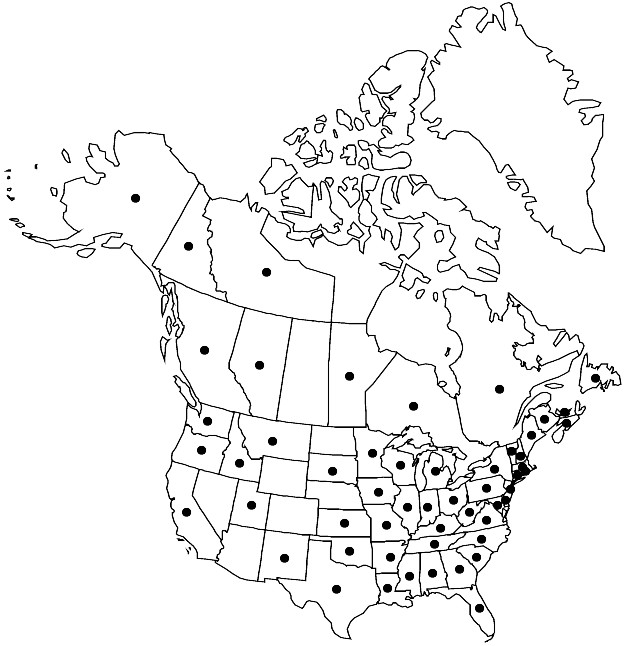Sisymbrium officinale
Fl. Carniol. ed. 2, 2: 26. 1772.
Annuals; glabrous or pubescent. Stems erect, branched distally, 2.5–7.5(–11) dm, usually sparsely to densely hirsute, (trichomes retrorse), rarely glabrate distally. Basal leaves usually rosulate; petiole (1–)2–7(–10) cm; blade broadly oblanceolate or oblong-obovate (in outline), (2–)3–10(–15) cm × (10–)20–50(–80) mm, margins lyrate-pinnatifid, pinnatisect, or runcinate; lobes (2)3 or 4(5) on each side, oblong or lanceolate, smaller than terminal lobe, margins entire, dentate, or lobed, (terminal lobe suborbicular or deltate, margins dentate). Cauline leaves similar to basal; blade with lobe margins dentate or subentire. Fruiting pedicels erect, (appressed to rachis), stout, narrower than fruit, 1.5–3(–4) mm. Flowers: sepals erect, oblong-ovate, 2–2.5 × ca. 1 mm; petals spatulate, 2.5–4 × 1–2 mm, claw 1–2 mm; filaments (erect, yellowish), 2–3 mm; anthers ovate, 0.3–0.5 mm. Fruits (erect), subulate-linear, straight, slightly torulose or smooth, stout, (0.7–)1–1.4(–1.8) cm × 1–1.5 mm; valves glabrous or pubescent; ovules 10–20 per ovary; style (0.8–)1–1.5(–2) mm; stigma slightly 2-lobed. Seeds 1–1.3 × 0.5–0.6 mm. 2n = 14.
Phenology: Flowering Apr-late Sep.
Habitat: Roadsides, fields, pastures, waste grounds, deserts
Elevation: 0-2200 m
Distribution

Introduced; Alta., B.C., Man., N.B., Nfld. and Labr. (Nfld.), N.W.T., N.S., Ont., P.E.I., Que., Yukon, Ala., Alaska, Ark., Calif., Conn., Del., Fla., Ga., Idaho, Ill., Ind., Iowa, Kans., Ky., La., Maine, Md., Mass., Mich., Minn., Miss., Mo., Mont., N.H., N.J., N.Mex., N.Y., N.C., Ohio, Okla., Oreg., Pa., R.I., S.C., S.Dak., Tenn., Tex., Utah, Vt., Va., Wash., W.Va., Wis., Europe, Asia, n Africa, introduced also in Central America, South America, Australia.
Discussion
Selected References
None.